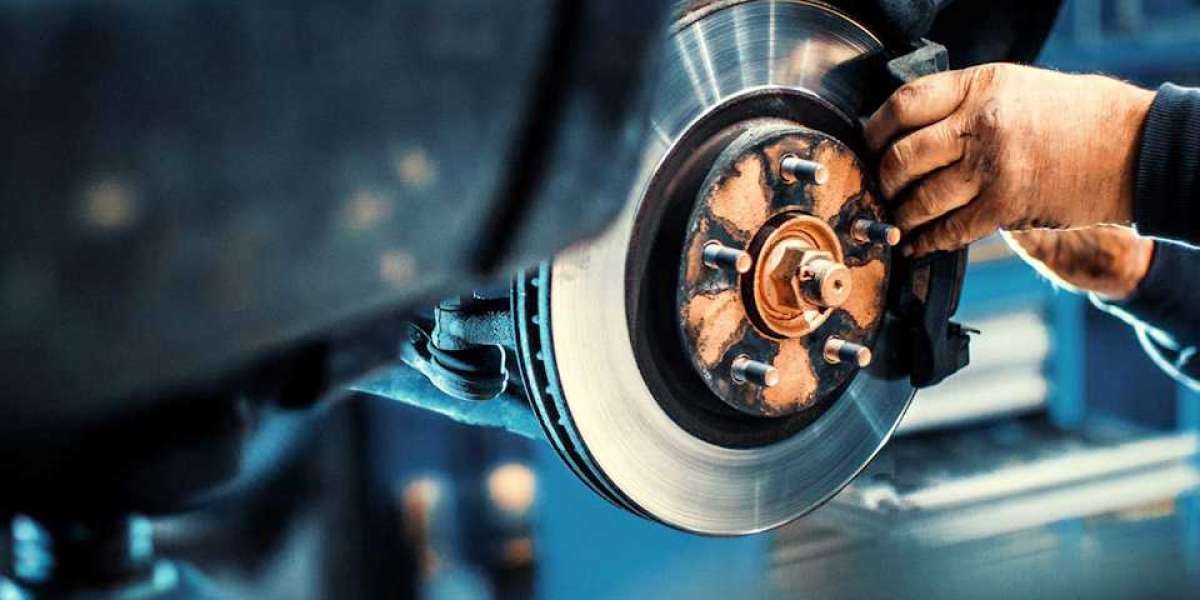Can You Trust Your Brakes in an Emergency? Here’s How to Know
Imagine you're driving down the highway when a car suddenly swerves in front of you. Your heart races, your hands tighten on the steering wheel, and your first instinct is to hit the brakes. But can you trust them? When it comes to safety, few things matter more than how your braking system performs under pressure. That’s why understanding the reliability of your brakes in emergencies is critical. Regular brake services are not just maintenance chores—they are essential for your safety, your vehicle's performance, and the well-being of everyone on the road.
Why Emergency Braking is a True Test
Emergency braking situations are completely different from normal, everyday stops. When you're braking in traffic or slowing down for a red light, you typically apply gentle pressure. But in a real emergency, you're slamming the brakes, relying on them to respond immediately and with full power. This sudden and forceful demand exposes any weakness your braking system might have.
So how do you know if your brakes are ready for that kind of demand? Let's break it down step-by-step.
1. Pay Attention to Warning Signs
Your brakes will often give you signs long before they become a serious safety risk. If you notice any of the following, it could indicate that your braking system might not perform well during an emergency:
- Squeaking or grinding noises
- Vibration or wobbling when braking
- A spongy or soft brake pedal
- Increased stopping distance
- Brake warning light on your dashboard
These symptoms are not just annoyances—they're warnings. Ignoring them could mean putting yourself in danger during a critical moment.
2. Understand the Role of Brake Fluid
Brake fluid is often overlooked, but it plays a major role in how your brakes perform. In emergencies, your brakes need to work instantly. If your brake fluid is low or contaminated, your pedal might feel soft or unresponsive. This could be the difference between stopping safely and getting into an accident.
Regular inspections and timely Brakes Service in Dubai ensure your fluid levels are adequate and free of moisture or debris.
3. Know the Lifespan of Brake Pads and Rotors
Brake pads and rotors are the workhorses of your braking system. Over time, they wear down due to heat, friction, and usage. Worn brake pads reduce the system’s ability to generate stopping power. If you go too long without checking or replacing them, your braking ability will suffer—especially during an emergency.
Have your pads and rotors checked regularly, especially if you drive in high-traffic areas or frequently brake hard.
4. Test Brakes in a Safe Environment
If you're unsure about the responsiveness of your brakes, do a controlled test in a safe and open space. Accelerate to a low speed and apply the brakes hard. If your car stops smoothly and quickly, that’s a good sign. If you feel shaking, hear noise, or notice the car pulling to one side, it's time for a professional inspection.
5. Don't Ignore the ABS System
Most modern vehicles come equipped with Anti-lock Braking Systems (ABS). ABS prevents your wheels from locking up during emergency stops, giving you better control. If your ABS light is on, it means your system might not engage properly when you need it most.
Make sure your ABS system is inspected during regular brake services. A faulty ABS can turn a manageable emergency into a disaster.
6. Importance of Regular Brake Services
Routine brake services are your best line of defense against unexpected failures. Regular maintenance doesn’t just replace worn parts; it also includes detailed inspections that can uncover issues before they become emergencies. During a standard service, technicians check brake pads, rotors, fluid, and the overall condition of the system.
This proactive approach ensures your braking system is always in optimal shape—and trustworthy in critical moments.
7. How Driving Habits Affect Brake Reliability
Believe it or not, the way you drive directly impacts how reliable your brakes are in an emergency. Constant hard braking, riding the brakes downhill, or tailgating can wear them out faster. On the flip side, smooth and calculated braking habits help extend the life and performance of your system.
If you're someone who drives in busy city traffic or mountainous terrain, consider scheduling Brakes Service in Dubai more frequently to stay ahead of wear and tear.
8. Listen to Professional Advice
Sometimes it's not easy to tell how your brakes are performing just by feel. Certified mechanics have the tools and experience to identify potential failures that you might miss. Don’t hesitate to get a second opinion if something feels off, or if your car has hit certain mileage milestones.
9. Weather and Brake Performance
Rain, snow, and ice dramatically change braking performance. Wet or slippery roads increase stopping distance, and worn brakes only make things worse. Ensuring your brakes are in good condition becomes even more critical in poor weather. Having reliable brakes can prevent skidding, hydroplaning, or complete loss of control.
Again, this circles back to consistent brake services—especially before and after seasonal changes.
10. Confidence Behind the Wheel
When you know your braking system is reliable, you drive with more confidence. Emergencies are unpredictable, but your reaction shouldn’t be hindered by doubt. Confidence comes from preparation, and preparation starts with regular checks, good driving habits, and timely brake services.
Conclusion
So, can you trust your brakes in an emergency? If you've been attentive to warning signs, kept up with your maintenance, and addressed issues promptly, the answer is yes. Braking systems aren’t just mechanical parts—they’re your first line of defense when something goes wrong on the road.
By prioritizing brake services, you’re not only protecting your car but also safeguarding lives. Don’t wait for a close call to start caring about your brakes. Get ahead of the problem, stay safe, and make every drive a little more secure.








